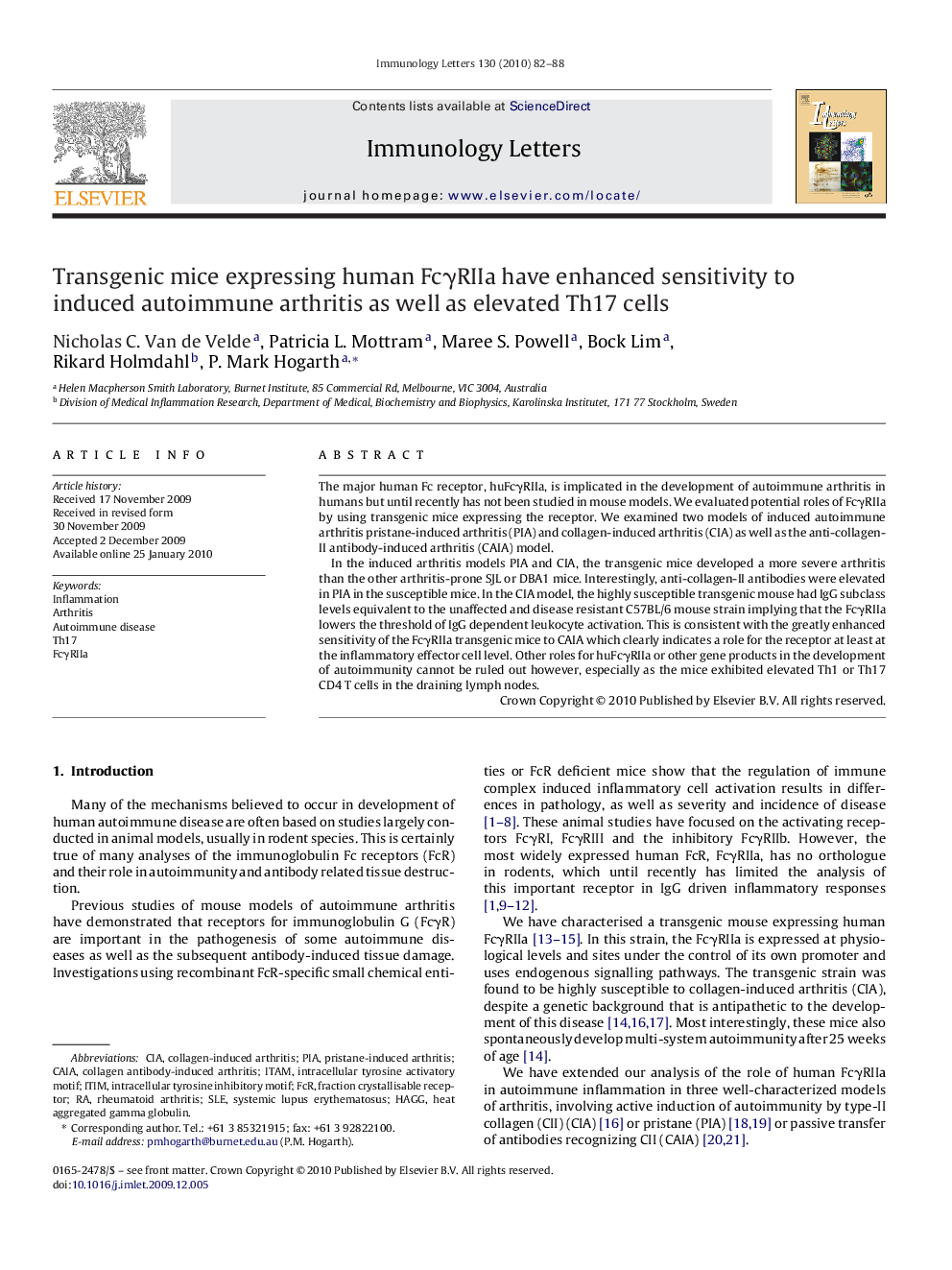| کد مقاله | کد نشریه | سال انتشار | مقاله انگلیسی | نسخه تمام متن |
|---|---|---|---|---|
| 3355852 | 1591579 | 2010 | 7 صفحه PDF | دانلود رایگان |

The major human Fc receptor, huFcγRIIa, is implicated in the development of autoimmune arthritis in humans but until recently has not been studied in mouse models. We evaluated potential roles of FcγRIIa by using transgenic mice expressing the receptor. We examined two models of induced autoimmune arthritis pristane-induced arthritis (PIA) and collagen-induced arthritis (CIA) as well as the anti-collagen-II antibody-induced arthritis (CAIA) model.In the induced arthritis models PIA and CIA, the transgenic mice developed a more severe arthritis than the other arthritis-prone SJL or DBA1 mice. Interestingly, anti-collagen-II antibodies were elevated in PIA in the susceptible mice. In the CIA model, the highly susceptible transgenic mouse had IgG subclass levels equivalent to the unaffected and disease resistant C57BL/6 mouse strain implying that the FcγRIIa lowers the threshold of IgG dependent leukocyte activation. This is consistent with the greatly enhanced sensitivity of the FcγRIIa transgenic mice to CAIA which clearly indicates a role for the receptor at least at the inflammatory effector cell level. Other roles for huFcγRIIa or other gene products in the development of autoimmunity cannot be ruled out however, especially as the mice exhibited elevated Th1 or Th17 CD4 T cells in the draining lymph nodes.
Journal: Immunology Letters - Volume 130, Issues 1–2, 4 May 2010, Pages 82–88